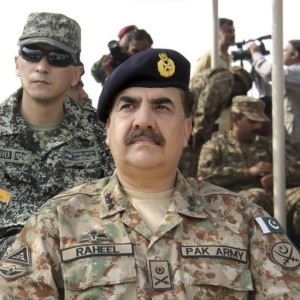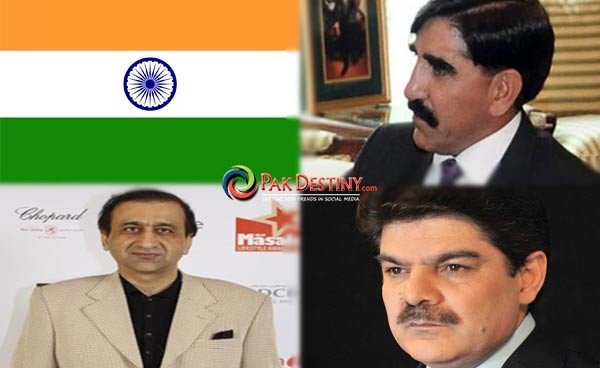Our Announcements
Sorry, but you are looking for something that isn't here.
Posted by admin in INDIA EXPOSED, INDIA FRAUD, INDIA IMAGE SPIN MASTERS, India Promoting Subversion in Pakistan Via Afghanistan, INDIA TRAINED SUICIDE BOMBERS FROM AFGHANISTAN, India Training Suicide Bombers in FATA, INDIA' NUCLEAR DUDS, INDIA'S ANTI-PAKISTAN TOXIC PROPAGANDA, INDIA'S CRIMES AGAINST HUMANITY on October 17th, 2014

By setting aside the principles of nuclear deterrence, intensity in the Indian unprovoked firing along the Line of Control (LoC) and Working Boundary (WB), which killed several persons since October 6, this year inside Pakistan, is alarming for peace-loving countries of South Asia including those of the world.
Calling for restraining its forces from constant violations of the ceasefire agreement of 2003, Pakistan government has lodged a strong protest with the India government through diplomatic channels, and also raised the issue with the UN Military Observers Group in India and Pakistan. In this regard, the UN observers visited the affected areas, and have shown serious concerns over the casualties inside Pakistan. On October 14, US Special Representative for Pakistan and Afghanistan Daniel Feldman also expressed his concerns over tension at LoC and WB, and stressed to resolve it through dialogue. Feldman elaborated, “He believes, Indian dream for world leadership and progress could not come true without better ties with Pakistan.
Meanwhile, contact through hotline was established between Directors-General Military Operations (DGMOs) of both the countries. Pak army’s DMO conveyed Pakistan’s concerns to his Indian counterpart, and pointed towards India’s consistent unprovoked firing on the civilian population living across LoC and WB.
In 2013, the Pakistani and Indian DGMOs had pledged to uphold the 2003 LoC ceasefire accord. But, by acting upon a preplanned scheme, Indian soldiers crossed over the LoC in Kashmir on January 6, 2013 and attacked a Pakistani check post, killing one Pakistani soldier and injuring many troops. While, Pakistan military officials indicated that Indian hostility has gradually increased since 2010, making lives of civil population living in closer vicinity of the LoC and WB difficult. Indian troops committed 86 ceasefire violations in 2011, 230 in 2012 and 414 in 2013. And, Indians have again resorted to deliberate firing for about 224 times and killed several people on the Pakistani side in 2014.
Particularly, leader of the fundamentalist party BJP and Prime Minister of India, Narendra Modi is reported to have given a free hand to the Indian forces to go on aggressively with the violations. While, Pakistan’s Prime Minister Nawaz Shariff convened a meeting of the National Security Committee on Oct 10, this year, and discussed the recent ceasefire violations by India at the LoC and WB.
In this respect, Pakistan’s military officials revealed that Indian perennial escalation across the LoC and WB is according to a deliberate plan. The spokesman of the Inter-Services Public Relations (ISPR), Maj-General Asim Bajwa said that Pakistan Rangers and troops “befittingly” responded to “unprovoked firing” by Indian Border Security Forces (BSF) and military troops. He also clarified that Pakistan’s Armed Forces are fully prepared to meet any aggression.
In fact, by promoting Hindu chauvinism on the basis of anti-Muslim and anti-Pakistan slogans, extremist party, BJP won a landslide victory in the India elections 2014 by defeating the Congress. Now, BJP-led Prime Minister Modi has been implementing its party’s agenda against Pakistan. In this context, border violations by the Indian forces at the Line of Control and Working Boundary, accompanying hostile statements by Indian leadership are aimed at hyping up Hindu sentiments against Pakistan.
Besides, other negative steps of the BJP government like cancellation of the Foreign Secretary level talks with Islamabad, schedule to be held on August 25, 2014, raising baseless issues of terrorism as pre-conditions to advance the Pak-Indian dialogue, slow pace of trial in Pakistan against the terrorists of the Mumbai 26/11 terror case, pledge of revoking the special status, given to Kashmir under Indian constitution’s Article 370, and to strengthen its measures to annex the area—are part of the same scheme to create a war like situation between the two rival countries which have fought three wars, since the Partition of 1947.
It is of particular attention that BJP leader Dr. Subramaniam Swami stated on July 12, 2014 that India needed only two years to defeat Pakistan militarily, and the only solution of Kashmir was war, as “there is no peaceful, democratic solution.” Responding to the withdrawal of the US-led NATO forces from Afghanistan, he remarked, “Americans will hand over Afghanistan to Taliban and go…India should send at least 200,000 troops to Afghanistan.”
In these terms, Indian hawks think that in the aftermath of the withdrawal of NATO, they will keep their anti-Pakistan network in Afghanistan by harming the genuine interests of Pakistan which shares geographical, cultural and religious bonds with the former, and is determined to bring peace and stability there.
Now, as part of its blame game, India has accelerated unprovoked firing at the LoC in Kashmir and WB in Sialkot to delay the Pak-India peace process, without caring for latter’s nuclear weapons. Although despite numerous military skirmishes, there has not been a full-blown war since India and Pakistan tested nuclear weapons in 1998, yet BJP-extremist rulers seem determined to initiate the same without bothering even for nuclear war. Therefore, Pakistan’s media and defense analysts must remind India of the principles of nuclear deterrence.
However, it is wishful thinking of the BJP leader that India can destroy Pakistan through nuclear bombs. While both the neighboring adversaries are nuclear powers, New Delhi should not ignore the principles of deterrence, popularly known as balance of terror.
After the World War 11, nuclear weapons were never used, and were only employed as a strategic threat. During the heightened days of the Cold War, many crises arose in Suez Canal, Korea, Cuba and Vietnam when the US and the former Soviet Union were willing to use atomic weapons, but they stopped because of the fear of nuclear war which could eliminate both the super powers. Therefore, the two rivals preferred to resolve their differences through diplomacy.
Similarly, many occasions came between Pakistan and India, during Kargil crisis of 1998, and Indian parliament’s attack by the militants in 2001, and particularly in 2008, in the post-Mumbai terror attacks when New Delhi started a blame game against Islamabad in wake of its highly provocative actions like mobilization of troops. Pakistan had also taken defensive steps to meet any prospective aggression or surgical strikes by New Delhi. But, India failed in implementing its aggressive plans, because Islamabad also possesses atomic weapons.
Political strategists agree that deterrence is a psychological concept which aims to affect an opponent’s perceptions. In nuclear deterrence, weapons are less usable, as their threat is enough in deterring an enemy who intends to use its armed might. In this context, a renowned scholar, Hotzendorf remarks that nuclear force best serves the interests of a state when it deters an attack.
In the present circumstances, BJP is badly mistaken, if it overestimates India’s power and underestimates Pakistan’s power. As Pakistan lacks conventional forces and weapons vis-à-vis India, so, in case of a prolonged conflict, Pakistan will have to use nuclear weapons and missiles which could destroy whole of India, resulting into Indian political suicide.
It is noteworthy that currently, more than half of India’s budget is allocated for armed forces, and defense purchases, leaving even less to lift millions of its citizens from abject poverty. Hence, various injustices have further intensified regional and ethnic disparities in India, while giving impetus to insurgency and wars of liberation in Assam, Kashmir, Khalistan, Mizoram, Nagaland, Tamil Nadu and Tripura. In the recent years, Maoist intensified their struggle, attacking official installments.
It is worth-mentioning that one of the important causes of the disintegration of the former Soviet Union was that its greater defense expenditure exceeded to the maximum, resulting into economic crises inside the country. In this regard, about a prolonged war in Afghanistan, the former President Gorbachev had declared it as the “bleeding wound.” However, militarization of the Soviet Union failed in controlling the movements of liberation, launched by various ethnic nationalities. On the other hand, while learning no lesson from India’s previous close friend, Indian Prime Minister Narendra Modi is acting upon the similar policies.
Past and present history of Balkan gives ample evidence that insurgency and movement of separatism in one country have drastic impact on other neighboring states. Similarly, civil war and unrest either in Somalia or Sudan have affected all the states of Darfur region, while violent uprising in Egypt, Syria etc. has radicalized a number of the Middle East countries. Indian state terrorism in the Indian-held Kashmir and country’s other regions in wake of Israeli atrocities on the Palestinians will further radicalize Asia.
Nonetheless, irresponsible and unrealistic approach of the BJP-led government in the modern era of peaceful settlement of disputes and economic development could culminate into political suicide of the India union. Therefore, India is reminded of nuclear deterrence in wake of creating war hysteria in its own country and Pakistan.
Sajjad Shaukat writes on international affairs and is author of the book: US vs Islamic Militants, Invisible Balance of Power: Dangerous Shift in International Relations
Email: [email protected]
Posted by admin in INDIA EXPOSED, INDIA FRAUD, INDIA IMAGE SPIN MASTERS, INDIA MACHINATIONS TO DESTROY CHINA, India Pollution, India Promoting Subversion in Pakistan Via Afghanistan, INDIA TRAINED SUICIDE BOMBERS FROM AFGHANISTAN, India Training Suicide Bombers in FATA, INDIA' NUCLEAR DUDS, INDIA'S CASTEISM, INDIA'S CRIMES AGAINST HUMANITY on April 24th, 2014
Posted by admin in INDIA EXPOSED, INDIA FRAUD, INDIA IMAGE SPIN MASTERS, India Promoting Subversion in Pakistan Via Afghanistan, India Secessionist Movements, India Splitting, INDIA SPLITTING INTO 5 NATIONS, INDIA TRAINED SUICIDE BOMBERS FROM AFGHANISTAN, India Training Suicide Bombers in FATA, INDIA'S CASTEISM, INDIA'S CRIMES AGAINST HUMANITY on April 24th, 2014

Posted by admin in INDIA EXPOSED, INDIA FRAUD, INDIA IMAGE SPIN MASTERS, INDIA MACHINATIONS TO DESTROY CHINA, INDIA SPONSORED TERRORISM IN KARACHI, INDIA STATE SPONSORED TERRORISM IN PAKISTAN, INDIA TRAINED SUICIDE BOMBERS FROM AFGHANISTAN, India Training Suicide Bombers in FATA, INDIA'S CRIMES AGAINST HUMANITY, India's Guru Scam, INDIA'TREACHERY IN BANGLADESH 1971, INDIAN ARMY CHIEF-TOKENISM TO APPEASE SIKH MINORITY, INDIAN GOVTS LIES EXPOSED, INDIAN SABRE RATTLING BITS THE DUST, INDIAN SCAMMERS AROUND THE GLOBE, INDOPHILE NAWAZ SHARIF, INEPT INDIAN NAVY on April 22nd, 2014